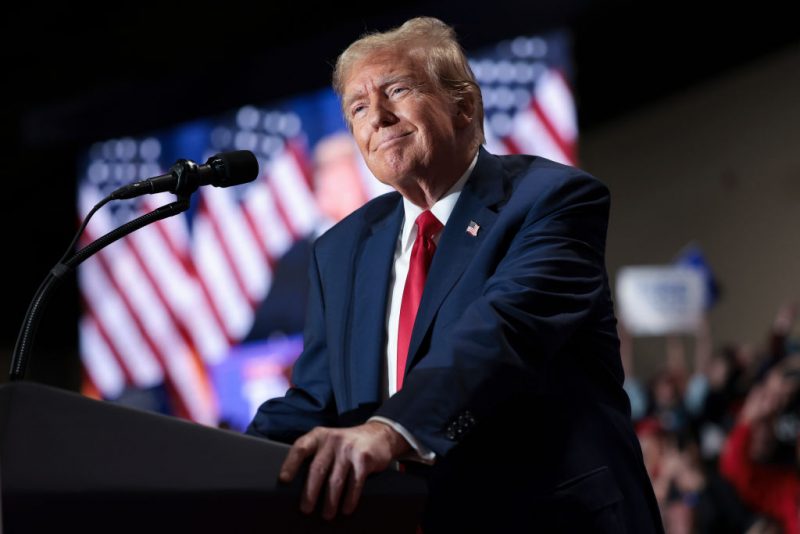A new study published in BMJ Global Health has revealed that the World Health Organization’s private fundraising arm—the WHO Foundation—has received tens of millions of dollars from pharmaceutical companies, major tech firms, and anonymous donors, with nearly half of its funding now untraceable.
The report emerges as U.S. Health Secretary Robert F. Kennedy Jr. announced that the United States would reject the WHO’s proposed emergency powers treaty, warning that the organization is seeking “global medical surveillance of every human being.”
According to the study:
“From its launch until the end of 2023, the foundation disclosed total donation receipts of US$82,783,930 overall, of which US$39,757,326 (48.0%) was from anonymous donations over US$100,000. In total, US$51,554,203 (62.3%) in anonymous donations were reported.”
The largest named donor was the Bill & Melinda Gates Foundation, which has long been one of WHO’s most influential funders:
“Donations varied by sector, with the largest named donations coming from the private philanthropic sector, including the Gates foundation and other family foundations, followed by social media companies, medical device companies and the banking/finance and pharmaceutical sectors.”
Secretary Kennedy recently halted U.S. funding to Gavi, the vaccine alliance backed by Gates, pointing to peer-reviewed research suggesting that the DTP vaccine promoted by Gavi “may kill more children from other causes than it saves.” He also criticized the alliance for treating vaccine safety as a public relations issue rather than a public health priority.
One Gates Foundation–funded trial reportedly injected South African children with live tuberculosis-causing bacteria, infecting 260 children and causing serious harm. This study excluded early post-vaccine infections from its analysis and followed a previous Gates-backed experiment involving genetically enhanced TB bacteria.
Launched in 2020, the WHO Foundation was created to accept funding from sources the WHO itself cannot directly receive money from. Known contributors now include Meta (Facebook), TikTok, Maybelline, Sanofi, Boehringer Ingelheim, and Novo Nordisk:
“This included the announcement of a US$50 million commitment from the WHOF via contributions from Sanofi, Boehringer Ingelheim, Novo Nordisk, TikTok, Maybelline and a range of other partners.”
Notably, a large portion of these funds are not being directed to WHO programs. Instead, they’re covering the operational costs of the WHO Foundation itself:
“The largest overall category, by amount donated, was ‘WHO Foundation Operational Support’, which received just under US$40 million over the entire reporting period, representing a majority (approximately 56%) of all funding received by the Foundation to date.”
Transparency has also declined sharply. While the Foundation was initially rated “B” for transparency, subsequent reporting periods earned it a “D”:
“In the first year of its operation… the WHOF would be rated ‘B’ for transparency… However, in the next two reporting periods, the WHOF would be assessed a ‘D’ for transparency…”
“Nearly 80% of funds donated in January–December 2023 were from anonymous sources and in amounts of over US$100,000.”
“Results show low and declining levels of transparency over time, potentially raising concerns about the level of outside influence and role of commercial interests in setting WHO priorities.”
While the Foundation officially excludes funding from tobacco and firearms industries, it does not apply the same restrictions to fossil fuels, alcohol, sugar-sweetened beverage companies, or vaping interests:
“The current version of the WHOF gift policy sets out specific donor exclusions, yet only for tobacco and firearms manufacturers, while fossil fuel companies, alcohol producers, sugar sweetened beverage manufacturers and vaping companies, for example, are not mentioned in any form.”
The Foundation also promotes the idea of providing insider access to WHO leadership:
“Through its unparalleled access to WHO, the Foundation advances health equity by connecting and collaborating with visionary corporate partners to co-create solutions that have the highest impact.”
Researchers from the London School of Hygiene and Tropical Medicine and the University of Edinburgh, who authored the BMJ study, caution:
“This analysis of WHOF donor disclosures indicates levels of donor transparency akin to oft-criticised free market think tanks, with attendant risks for both undue influence and/or reputational damage for the WHOF, and by extension the WHO.”
Ultimately, the WHO Foundation is not only accepting significant funding from Big Pharma and Big Tech but is also relying heavily on untraceable donations. While claiming to promote global health, it shields its financial backers behind a veil of anonymity—all while asserting “unparalleled access” to one of the most powerful health institutions in the world.
How can the WHO maintain its claim of neutrality when it’s being funded by pharmaceutical companies, censorship-linked tech firms, and tens of millions in dark money from anonymous donors?
 Telegram is where we really talk. Don't miss out!
Telegram is where we really talk. Don't miss out!








